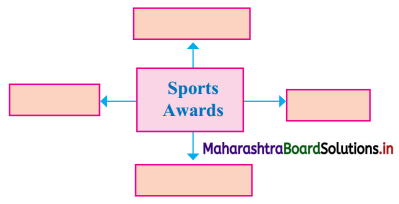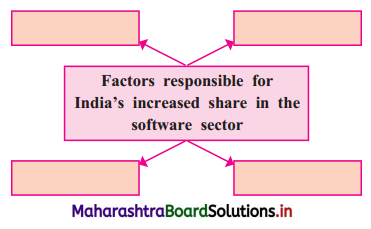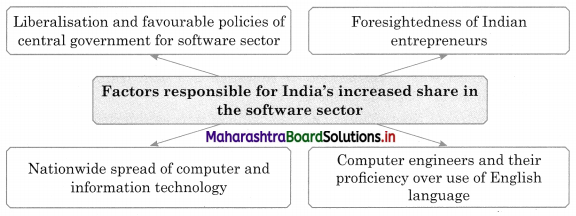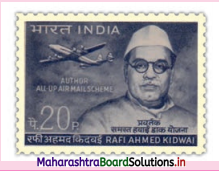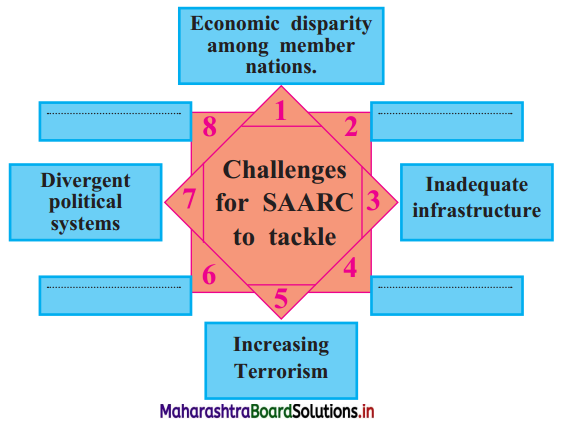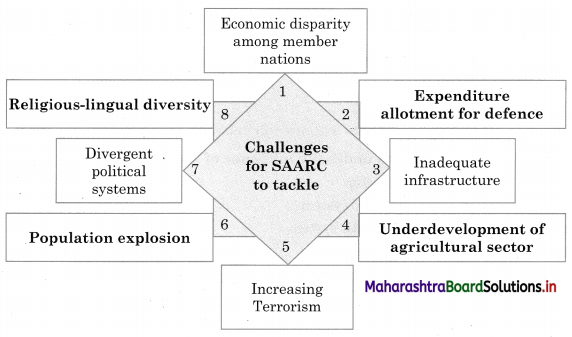Mathematical Logic Class 12 Commerce Maths 1 Chapter 1 Exercise 1.5 Answers Maharashtra Board
Balbharati Maharashtra State Board 12th Commerce Maths Solution Book Pdf Chapter 1 Mathematical Logic Ex 1.5 Questions and Answers.
Std 12 Maths 1 Exercise 1.5 Solutions Commerce Maths
Question 1.
Use qualifiers to convert each of the following open sentences defined on N, into a true statement:
(i) x2 + 3x – 10 = 0
Solution:
∃ x ∈ N, such that x2 + 3x – 10 = 0 is a true statement
(x = 2 ∈ N satisfy x2 + 3x – 10 = 0)
(ii) 3x – 4 < 9
Solution:
∃ x ∈ N, such that 3x – 4 < 9 is a true statement.
(x = 1, 2, 3, 4 ∈ N satisfy 3x – 4 < 9)
(iii) n2 ≥ 1
Solution:
∀ n ∈ N, n2 ≥ 1 is a true statement.
(All n ∈ N satisfy n2 ≥ 1)
![]()
(iv) 2n – 1 = 5
Solution:
∃ x ∈ N, such that 2n – 1 = 5 is a true statement.
(n = 3 ∈ N satisfy 2n – 1 = 5)
(v) y + 4 > 6
Solution:
∃ y ∈ N, such that y + 4 > 6 is a true statement.
(y = 3, 4, 5, … ∈ N satisfy y + 4 > 6
(vi) 3y – 2 ≤ 9
Solution:
∃ y ∈ N, such that 2y ≤ 9 is a true statement.
(y = 1, 2, 3 ∈ N satisfy 3y – 2 ≤ 9).
Question 2.
If B = {2, 3, 5, 6, 7}, determine the truth value of each of the following:
(i) ∀ x ∈ B, x is a prime number.
Solution:
(i) x = 6 ∈ B does not satisfy x is a prime number.
So, the given statement is false, hence its truth value is F.
(ii) ∃ n ∈ B, such that n + 6 > 12.
Solution:
Clearly n = 7 ∈ B satisfies n + 6 > 12.
So, the given statement is true, hence its truth value is T.
(iii) ∃ n ∈ B, such that 2n + 2 < 4.
Solution:
No element n ∈ B satisfy 2n + 2 < 4.
So, the given statement is false, hence its truth value is F.
![]()
(iv) ∀ y ∈ B, y2 is negative.
Solution:
No element y ∈ B satisfy y2 is negative.
So, the given statement is false, hence its truth value is F.
(v) ∀ y ∈ B, (y – 5) ∈ N.
Solution:
y = 2 ∈ B, y = 3 ∈ B and y = 5 ∈ B do not satisfy (y – 5) ∈ N.
So, the given statement is false, hence its truth value is F.
Maharashtra State Board Std 12th Commerce Maths Textbook Solutions
- Mathematical Logic Ex 1.1 Class 12 Commerce Maths Textbook Solutions
- Mathematical Logic Ex 1.2 Class 12 Commerce Maths Textbook Solutions
- Mathematical Logic Ex 1.3 Class 12 Commerce Maths Textbook Solutions
- Mathematical Logic Ex 1.4 Class 12 Commerce Maths Textbook Solutions
- Mathematical Logic Ex 1.5 Class 12 Commerce Maths Textbook Solutions
- Mathematical Logic Ex 1.6 Class 12 Commerce Maths Textbook Solutions
- Mathematical Logic Ex 1.7 Class 12 Commerce Maths Textbook Solutions
- Mathematical Logic Ex 1.8 Class 12 Commerce Maths Textbook Solutions
- Mathematical Logic Ex 1.9 Class 12 Commerce Maths Textbook Solutions
- Mathematical Logic Ex 1.10 Class 12 Commerce Maths Textbook Solutions
- Mathematical Logic Miscellaneous Exercise 1 Class 12 Commerce Maths Textbook Solutions
